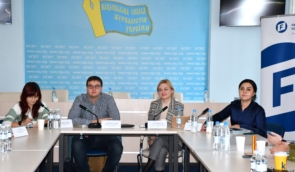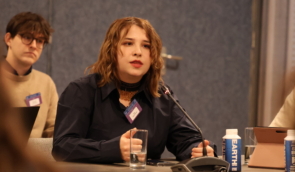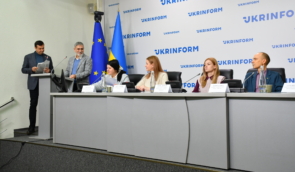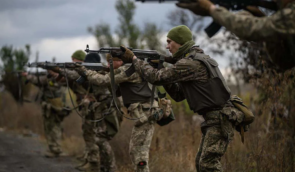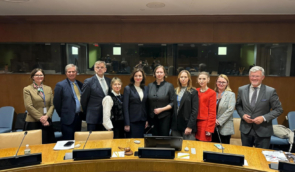OSCE invoked the Moscow Mechanism to gather new evidence of war crimes in Ukraine
On June 2, the OSCE Office for Democratic Institutions and Human Rights (ODIHR) invoked the Moscow Mechanism Report to gather new evidence of war crimes, crimes against humanity, and human rights violations committed during Russia’s armed aggression in Ukraine.
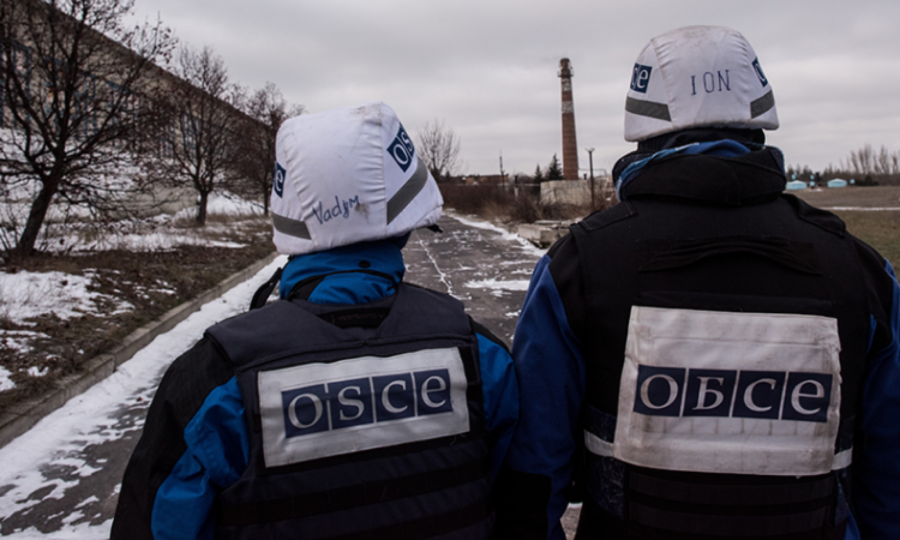
The decision to launch the mechanism allows for the deployment of an independent international mission to examine information on human rights violations, war crimes, and crimes against humanity, including attacks on civilians and civilian infrastructure.
On May 16, within the framework of the second Supplementary Human Dimension Meeting, the OSCE, together with Ukrainian and international human rights organizations, advocated for the initiation of the second Moscow Mechanism and provided recommendations for strengthening its mandate.
The latest report of the Moscow Mechanism covers the events that took place between February 24 and April 1, 2022. However, the war continues, Russia continues to commit war crimes and crimes against humanity. Therefore, on June 2, 45 OSCE participating States expressed concern about the impact of military aggression against Ukraine and re-initiated the Moscow Mechanism.
They demanded that OSCE / ODIHR Director Matteo Meccacci ask Ukraine whether it is ready to invite a new mission of international experts to examine, continue, and expand the results of the Moscow Mechanism report received by OSCE participating States on April 12, 2022. This report includes, in particular, evidence of war crimes and crimes against humanity gathered by Ukraine 5 AM Coalition of NGOs
“It is important that there is unity among OSCE participating States on the need to continue gathering evidence of crimes committed in the territory of Ukraine to bring war criminals to justice. Initiating the Moscow Mechanism for the second time will allow independent experts to gather facts of human rights violations and alleged war crimes that took place after April 1, 2022,” said Maria Kurinna, international advocacy manager at ZMINA.
Background. The Moscow Mechanism is an OSCE procedure that allows for the deployment of a short-term international fact-finding mission to address a specific human rights issue in the OSCE region. This mechanism is called “Moscow” because it was adopted during a meeting of the Conference on Security and Cooperation in Europe in Moscow in 1991.
The Moscow Mechanism to address the human rights and humanitarian impacts of Russia’s aggression against Ukraine was invoked on March 3, 2022 after consultations between Ukraine and 45 OSCE participating States. Its goal is to “address the human rights and humanitarian impacts of the Russian Federation’s invasion and acts of war, supported by Belarus, on the people of Ukraine, within Ukraine’s internationally recognized borders and territorial waters.”
It is planned to establish a short-term mission to establish facts to be reflected in the mission’s report. The mission’s activity is provided for by the OSCE Office for Democratic Institutions and Human Rights in Warsaw.
Ukraine selected three people from the list of experts to be part of the mission: Marco Sassoli, Professor of International Law, University of Geneva; Wolfgang Benedek, University Professor ret. of International Law, University of Graz; Veronika Bílková, Associate Professor, Faculty of Law, Charles University in Prague. The experts started working on March 15, 2022.
The Moscow Mechanism was previously invoked in 2020 to examine alleged human rights violations in Belarus.
The Moscow Mechanism was also invoked in 1992 over the events in Croatia and Bosnia. In February 1993, the fact-finding mission recommended that an international criminal tribunal for the former Yugoslavia should be established. Sweden, which chaired the (then) CSCE, submitted a proposal to the UN. Four months later, the International Criminal Tribunal for the Former Yugoslavia was established.
If you have found a spelling error, please, notify us by selecting that text and pressing Ctrl+Enter.

